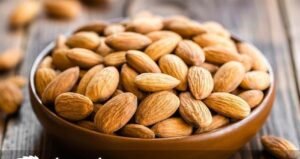Seniors looking for handy and wholesome snacking solutions to stay fit often turn to dried meats. Their ease of carrying, lasting nature, and high protein value make them a favored choice. For seniors living in assisted living communities, easy and quick snacks can be a godsend on hectic or lethargic days.
But is dried meat genuinely a wholesome option? Let’s delve into its nutritional facts, potential health gains, concerns about it, and ways for the elderly to incorporate these items within an even-handed diet.
Nutritional Value of Dried Meats
Dried meats like jerky and biltong are excellent snack options for seniors. They pack protein, which means stronger muscles, boosting overall health as one ages. They also contain essential nutrients such as iron, zinc, and B vitamins, which give the body energy while upgrading the functions of our immune system.
Not all dried meats offer the same benefits as a healthy snack for seniors. Preparation methods can affect nutrient content. Some are laden with extra sugars and artificial preservatives, and others have an excess of sodium, subtracting from their supposed health advantages. If seniors choose meat snacks that lean on processing and are free from additives, the nutritional value will stay intact.
Health Benefits of Dried Meats for Seniors
Dried meats can be an easy-to-grab energy source, particularly valuable for the elderly, who may find it challenging to ingest enough protein through routine meals. Their handy nature renders them great snacks on the move or additions to picnic lunches during trips. The iron found in dried meats helps alleviate fatigue and aids healthy red blood cell formation—essential factors that contribute to overall vitality.
Moreover, the satiating effect of protein-filled snacks can aid seniors in appetite control and weight management. Despite that, it’s key they enjoy these treats cautiously. Pairing them with fiber-packed edibles like fruits or veggies is a good move to support gut health.
Potential Concerns and Risks
Though dried meats have certain perks, they might also pose some issues for the elderly. Numerous store-bought variants contain high sodium, which can lead to high blood pressure and other heart-related conditions. Seniors dealing with kidney troubles or on low-sodium diets need to tread carefully here.
Furthermore, some items might contain preservatives such as nitrates, which can pose potential health hazards when eaten in excess. Studying the product labels meticulously and choosing organic or low-salt alternatives may help reduce these risks.
Incorporating Dried Meats Into a Balanced Diet
Adding dried meats to a healthy diet is something seniors should navigate carefully, calling for moderation and variety. Teaming these flesh treats with fresh fruits, vegetables, or whole-grain crackers can result in balanced snack choices filled with protein, fiber, and other crucial nutrients.
Lean variants of such meat snacks that undergo minimal processing should be the pick to avoid needless fats and additives. Seniors need to pay attention to portion control, as dried meats are calorie-rich. When these snacks are part of a well-balanced diet, they can be savory and nourishing choices.
Conclusion
Dried meats, when chosen with care and eaten wisely, can serve as healthy snacks for seniors. Selecting top-notch options that are minimally processed and pairing them up with other nutrient-dense foods lets the elderly relish these protein-rich treats while keeping any potential risks in check. Whether at home or living under assisted care, dried meats consumed responsibly make a pleasurable addition to a senior’s diet.








